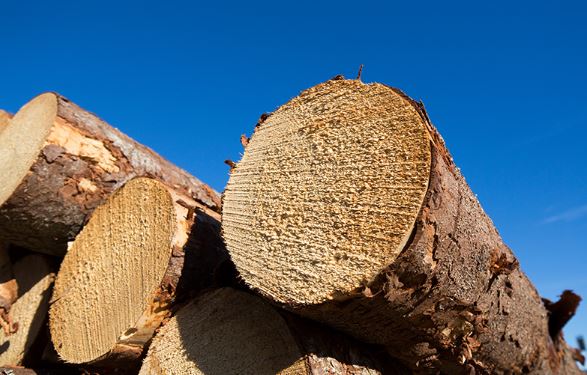
The forest products market worldwide is anything but stagnant.
With various factors such as weather conditions, policy changes,
and global demand constantly tipping the scale, anyone involved
in this sector must stay current with the latest developments.
Let's delve into the rich tapestry of Finland's forestry sector
updates as of July 2024.
The Finnish Economy Contracted in 2023 and Isn't Expected to
Grow in 2024
The combination of slowing inflation, falling interest rates,
and positive trends in household income is set to boost
disposable income and consumer spending. However, investment
growth is not anticipated until 2025.
The projections for GDP growth are as follows:
Cuts to public spending and tax hikes are
likely to dampen domestic demand and increase prices. Although
employment saw a slight decline in 2024, it is projected to rise
from 2025 onward, driven by growth in demand and government
initiatives aimed at boosting employment. By 2026, the
employment rate is expected to reach 73.9%, while the
unemployment rate is anticipated to drop to 6.9%.
Sawmills are facing challenges due to the rising prices of logs.
The primary factors driving these increases are the improved
conditions within the pulp industry and a thriving energy wood
market. In 2020, log stumpage prices (under bark) ranged from
€55 to €60 per cubic meter, while current prices have risen to
between €83 m and €85 and above per cubic meter.
In the autumn, private sawmills are likely to implement
production cutbacks if further price increases are not achieved
due to their substantial cost structures. In contrast,
integrated mills are unlikely to reduce their sawmill output,
given the strong demand for chips and pulpwood.
Output of Finnish Sawmills Declined
It is estimated that the output of Finnish softwood sawmills has
declined by 6% during the first half of 2024 to 5.5 million m³
compared to the same period in 2023. Output of redwood declined
by 5% and whitewood by 7%. However, at the end of June, the
inventories of both redwood and whitewood were 10-15% below the
levels at the same time in 2023.
The domestic market continues to struggle, primarily due to the
sluggish construction sector. Over the past 12 months,
cumulative domestic consumption has plummeted to a record low of
1.9 million m³. In contrast, nearly 6 million m³ were consumed
before the financial crisis.
Export markets have been relatively quiet, though small price
increases have been observed in select areas. Nevertheless,
order books for the third quarter remain incomplete. Notably,
Chinese imports of Finnish products fell by 27% in the first
half of the year, totaling 370,000 m³ compared to the same
period last year.
Government Submits the Annual Climate Report to Parliament
One of the highlights for June is the submission of the Annual
Climate Report by the Finnish Government to Parliament. This
comprehensive document delves into Finland's progress towards
its climate targets and is structured around the emissions from
different sectors, including land use, land use change, and
forestry (LULUCF).
The report provides an alarming insight into the decreasing size
of the forest carbon sink over the past few years due to various
factors. Despite forests being traditionally a sink, the sector
imitated a source of emissions in 2018, 2021, and 2022. The data
also suggests a deficit in meeting the EU obligations for the
land use sector for 2021ĘC2025.
In response, the government is formulating measures revolving
around the rotation periods of commercial forests, the intensity
of thinning operations, and peatland management to recover the
sinks of forests. Nevertheless, influencing the harvesting
volumes may prove challenging due to the high percentage of
private ownership of forests in Finland.
Finnish Roundwood Prices on the Rise
Finnish roundwood prices are on an upward trajectory despite the
dull market for sawn softwood. Pulp, paper, and packaging
markets are showing signs of recovery, meaning companies are
eager to buy more wood. However, with log prices hitting record
levels, these companies are feeling challenged by the price
development.
Log prices in Central Europe seem to be eroding due to sawmills'
thick reserves of roundwood and an increasing supply of damaged
wood. There have also been tough logistical conditions that have
presented a challenge to the wood supply. Roundwood prices in
Sweden appear to mirror the trends observed in Finland, while
there are also indications of rising log prices in the Baltic
region.
Source: resourcewise.com
